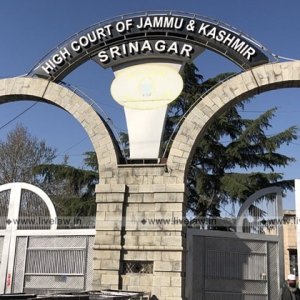
.png) Joseph Maliakan
Joseph Maliakan

In a very salutary judgement on 17 November 2023, the Jammu and Kashmir and Ladakh High Court held that arrest under the Unlawful Activities (Prevention) Act (UAPA), 1967, without legal justification violates fundamental rights under Articles 14 and 21 and the accused is entitled to bail despite section 43 D (5). Had the legal arguments in the High Court order been applied in similar UAPA arrests in other parts of the country, it would have by now led to the grant of bail to hundreds of citizens arrested under the draconian (UAPA) 1967 and languishing in various jails in the country.
With the legal challenge to the UAPA still pending before the Supreme Court, it will be beneficial to apply the arguments in the J&K High Court order to get bail for other UAPA accused in different parts of the country.
When granting bail to journalist Fahad Shah, a division bench of the J&K High Court comprising Justices Atul Shreedaran and Mohan Lal observed at the outset that arrest under UAPA without legal justification would violate equality and liberty rights under the Constitution.
The High Court granted Shah bail on 17 November, more than two and a half years after the J&K police arrested him on charges of terrorism. The Court observed that invoking terrorism charges against Shah for an 11-year-old article collides headlong with the fundamental right to freedom of speech and ex
The article in question, "The Shackles of Slavery will Break", written by Ala Fazili, a University of Kashmir scholar, appeared in the Kashmir Walla outlet, founded by Shah in 2011. Fazili and Shah were arrested in 2022 in the antiterror case filed in the Jammu CIJ police station by the J&K State Investigation Agency (SIA). Shah's bail application was rejected by a lower court.
The SIA accused the two of glorifying terrorism, terror conspiracy and waging war against the country, besides a slew of other charges under the UAPA, 1967 and under the Foreign Contributions Regulation Act (FCRA).
The prosecution had invoked Section 43 D (5) of the UAPA to oppose Shah's bail application. Under this section, a court cannot grant bail to a UAPA accused without hearing the prosecution. The prosecution had pleaded that the article "The Shackles of Slavery will Break" in the Kashmir Walla was a terrorist attack as defined in Section 15 (1) (a)(iv) of UAPA. It argued that the article had attacked India's honour, dignity and fair name, which was her 'corporeal' property under Section 2 (h) of the UAPA.
Dismissing the prosecution's argument that the publication of the article was a terrorist attack, the Hich Court ruled: "If this argument is accepted, it would literally turn criminal law on its head. It would mean any criticism of the central government can be described as a terrorist act because the honour of India is its incorporeal property".
The High Court further pointed out that the prosecution had not provided evidence of violence or attack on security forces due to the article's publication. Referring to the prosecution's argument that some unpublished poems recovered from Shah's home showed his 'separatist mentality', the Court countered by saying that the poems "reflect his fondness for the valley and freedom, as also his pain and the anguish at the turmoil in J&K".
The chargesheet filed by the SIA sought to link the recent protests and militancy-related incidents in Kashmir to the article, which also led to the radicalisation of the Kashmiri youth. The charge sheet further said it was part of a "secessionist-cum-terrorist campaign" to incite the youth of Jammu and Kashmir into adopting "violent means of protest to secede from India and accede to Pakistan".
The High Court ruled that there was no reference to the accession of J&K with Pakistan in the article and no call to arms. There is no incitement to violence of any kind, much less acts of terrorism or of undermining the authority of the State with acts of violence", the Court said. "It cannot be presumed reasonably that the instances of stone pelting that may have taken place in 2022 were instigated by the offending article uploaded in 2011", the Court pointed out.
"Affixing liability for the offences between 2020 to 2022 based on the article written and published in 2011 would be stretching causation to absurd limits", the Court said. "While granting bail under UAPA, despite the existence of a prima facie case, the 'Absence of a Need to Arrest' would violate the right to life under Article 21 of the Constitution, and therefore, the Court can grant bail on account of violation of Article 21", the HC concluded. The order also pointed out that the prosecution could not prove the charge of 'clear and present danger' against Shah.